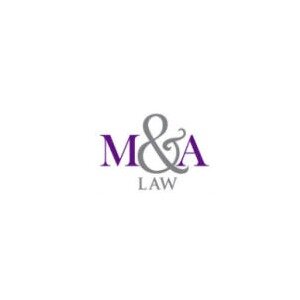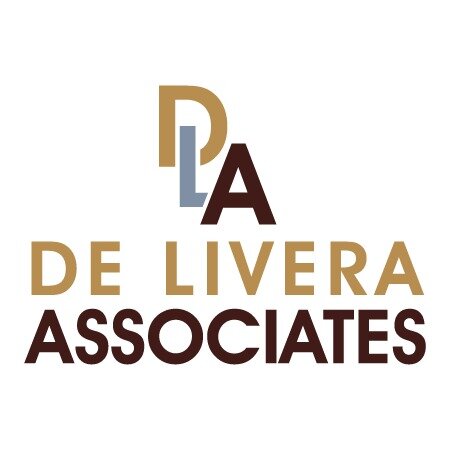Best Landlord & Tenant Lawyers in Colombo
Share your needs with us, get contacted by law firms.
Free. Takes 2 min.
Free Guide to Hiring a Real Estate Lawyer
List of the best lawyers in Colombo, Sri Lanka
About Landlord & Tenant Law in Colombo, Sri Lanka
Landlord & Tenant law in Colombo, Sri Lanka, is primarily governed by the Rent Act No. 7 of 1972, under the purview of the national government. The Act manages the relationship between landlords and tenants, determines rent control, protection against eviction, and responsibilities and duties on both sides. Pertaining to this law, the urban areas designated as "Colombo District" fall under different regulations to the outlying rural areas, reflecting the unique context of Colombo's real estate environment.
Why You May Need a Lawyer
Since rent dispute cases can be complicated, having a lawyer could be of great benefit. These professionals are knowledgeable about eviction cases, cost disagreements, property damage incidents, and the ins and outs of the Rent Act. If you're a landlord who is faced with a problematic tenant, a lawyer can help you handle and navigate the eviction process. As a tenant, a lawyer can assist you if you feel that your rights are being violated, if you're being unfairly evicted or if the premises are unfit for living.
Local Laws Overview
The Rent Act No. 7 of 1972 is dominant legislation. It protects the tenant against abrupt eviction and regulates rent increases. However, it's crucial to note that properties constructed after 1980 are considered outside the purview of the rent control law. As such, it allows the landlord and tenant greater freedom in negotiating rent and terms of the lease, sometimes to the disadvantage of the latter. Landlords need to provide a safe and healthy environment for their tenants, and tenants must uphold the agreed rental payments and ensure the good condition of the property.
Frequently Asked Questions
1. Can a landlord increase the rent arbitrarily?
The law restricts landlords from increasing rental rates arbitrarily, especially for properties built before 1980. Any rent hike must be reasonable and in accordance with the terms of the lease agreement.
2. How much notice is required for eviction?
Under the Rent Act, a landlord must give a two months' notice for eviction. But, this can only happen if there are substantial grounds, such as not paying rent for over a month or using the premises for illegal activities.
3. When do I need to pay a security deposit?
A security deposit is usually paid before moving into the property. The amount, typically equivalent to one or two months' rent, is held by the landlord for the duration of the lease.
4. Can tenants be held responsible for repairs and property renovations?
Usually, the landlord is responsible for major repairs and renovations unless stated otherwise in the lease agreement. Minor repairs may fall on the tenant, depending on the agreement's terms.
5. What are the legal grounds for terminating a lease?
Grounds like repeated late payment of rent, significant property damage, violating terms of the lease, or using the premises for illegal activities give the landlord grounds to terminate a lease.
Additional Resources
You can explore the following resources for further assistance:
- National Consumer Commission of Sri Lanka
- Sri Lanka Bar Association
- Rent Act No. 7 of 1972
Next Steps
If you need legal assistance related to landlord and tenant issues, it's advisable to consult with a qualified lawyer specializing in this kind of law. Ensure that you have all necessary documents such as lease agreements, correspondences, proof of payments and any other related document, which could be helpful in your case.
Lawzana helps you find the best lawyers and law firms in Colombo through a curated and pre-screened list of qualified legal professionals. Our platform offers rankings and detailed profiles of attorneys and law firms, allowing you to compare based on practice areas, including Landlord & Tenant, experience, and client feedback.
Each profile includes a description of the firm's areas of practice, client reviews, team members and partners, year of establishment, spoken languages, office locations, contact information, social media presence, and any published articles or resources. Most firms on our platform speak English and are experienced in both local and international legal matters.
Get a quote from top-rated law firms in Colombo, Sri Lanka — quickly, securely, and without unnecessary hassle.
Disclaimer:
The information provided on this page is for general informational purposes only and does not constitute legal advice. While we strive to ensure the accuracy and relevance of the content, legal information may change over time, and interpretations of the law can vary. You should always consult with a qualified legal professional for advice specific to your situation.
We disclaim all liability for actions taken or not taken based on the content of this page. If you believe any information is incorrect or outdated, please contact us, and we will review and update it where appropriate.

















